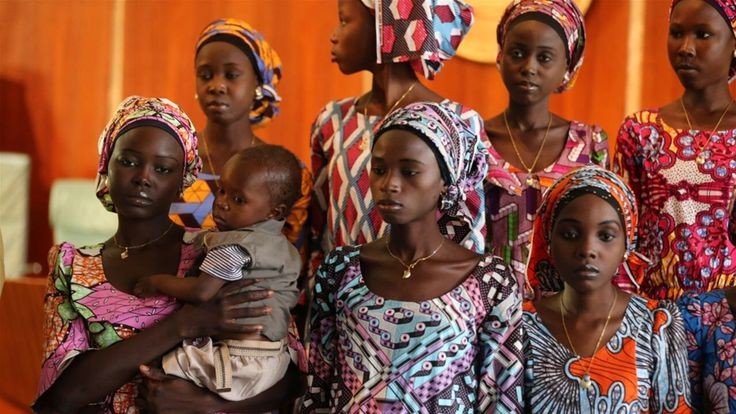Chibok Girls-In the decade since the notorious Boko Haram attack on Chibok secondary school in Borno state, Nigeria, the social and political landscape surrounding terrorism has been marked by profound challenges and persistent threats. The abduction of 276 girls in April 2014, and the subsequent captivity of many, highlights a grievous ongoing human rights crisis.
Amnesty International’s recent findings reveal a grim reality: 82 Chibok girls remain in captivity, and over 1,700 children have been abducted by gunmen since 2014. The forced marriage of 20 released girls to former Boko Haram fighters, under the oversight of the Borno state government, is particularly harrowing. This practice not only violates the girls’ rights but also their mental well-being, illustrating a troubling normalization of severe abuses.

It’s my son’s birthday today which makes me feel even more in solidarity with the parents of the Chibok girls in Nigeria who were abducted 6 months ago today by Boko Haram. They are still missing!!! At the moment of this rally those parents were marching on the Presidential Palace in Abuja to call on Goodluck Jonathan to pay attention to what can be done to free those girls from a situation too horrible to imagine. I …less
Alicia Keys
The lack of political will to effectively combat terrorism in Nigeria has had dire consequences for its citizens and has undermined regional stability in Africa. The government’s failure to learn from past incidents, such as the Chibok abductions, and to implement protective measures for schools is alarming. Despite the launch of the Safe Schools Initiative, its poor implementation—plagued by corruption and bureaucracy—has led to the indefinite closure of numerous schools, further disrupting children’s education.

Innovative solutions have been scarce, and the effectiveness of existing programs, such as the conflict recovery programme for repentant Boko Haram fighters, is questionable given instances like the forced marriages. This approach raises serious concerns about the integrative processes and the respect for the rights of the victims.
To make a positive difference, there must be a concerted effort from the Nigerian government to fulfill its national and international human rights obligations, prioritize the safe return of all abductees, and genuinely reform its counterterrorism strategies. The upcoming Amnesty International report on crimes committed by Boko Haram and the military since 2013 is expected to shed further light on the abuses and the specific reintegration needs of the victims, potentially guiding more informed actions in the future.
The social impact of these tragedies is profound, affecting not just the direct victims but also their communities and the broader societal structure. For Nigeria, and indeed Africa, to effectively counter terrorism, there must be an authentic commitment to addressing these fundamental human rights issues, supported by actionable and transparent government policies.

Leave a Reply
You must be logged in to post a comment.